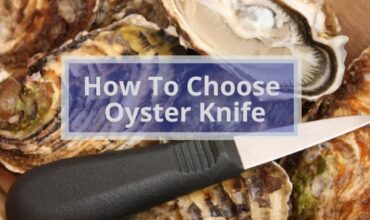Did your precious folding knife rust and still, you don’t want to throw it away? then it’s time to learn how to get rust off your pocket knife.
Before getting to know the methods of removing rust from your knife, you should first know the reasons behind that rust.
Why Did Your Pocket Knife Rust?
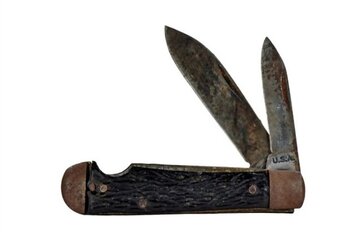
Rust starts to appear on any iron metal whenever humidity exists. The first reason behind rust is the steel material. Carbon steel rusts much faster than stainless ones.
Stainless steel itself is relatively rust-resistant. It is rust-resistant, not rust-proof!
Your knife’s finish is another factor as well. all knives have a surface layer that can resist rusting depending on their finishing, while a lot of knives aren’t even finished and have bare steel.
Another reason is how often do you care for the blade. and in what surrounding environment you use it. Places with high moisture will create rust fastly. Salt, water, and air also have the same moisture consequences.
Now it is time to know
How To Get Rust Off A Pocket Knife?
1- Soak and Wipe (Yes. it works!)
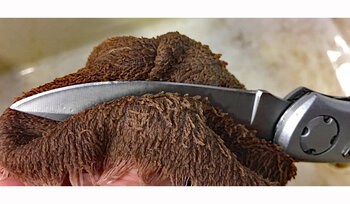
This method can always work on dust rust and light rust residues.
Required Tools
- A rag
- Rust remover
Steps
- Soak the rag in the rust remover.
- Wipe the rust stain again and again in the grain direction. till you see the rust start to go away.
- After removing the whole rust traces, wipe your knife using a dry rag.
- Lightly oil the whole surface of your knives using quality oils. This is how to get rust off a pocket knife with this method.
Also read , How to Hone Your Knife? | Easy Guide
2- A Good Rubbing
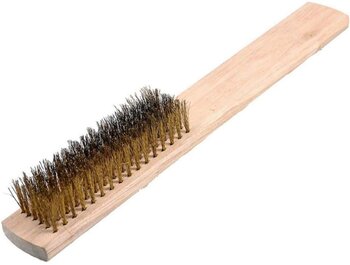
Aggressive tools will also work. However, there is a chance to leave swirl signs on your knife. Just be careful.
Required Tools
- Rust remover
- Copper brush
- Dry, soft cloth
- Oil
Steps
- Wet the rusty spots and the copper brush with rust remover
- Gently rub rusty spots back and forth in the direction of grains.
- Make sure to follow the steel grains.
- Renew rust remover on the rusty areas from time to time.
- After removing the whole rust traces, wipe the steel using a dry, clean cloth.
- Lightly oil the whole surface of your knives using quality oils.
3- Scrape and Scrape a Little More
Required Tools
- Penny: Actual copper penny
- Rust remover
- Steel wool
Steps
- Wet the corroded parts using the rust remover, then leave it to soak for the suggested period.
- With the penny, scrub rust deposits in the grains directions.
- If you are removing heavy rust deposits, reuse rust remover.
- Use it for buffing infected areas in the grain’s directions. Never swirl or do circular motions.
- After removing the whole rust traces, wipe the steel using a dry, clean rag.
- Lightly oil the whole surface of your knives with quality oils.
4- Baking Soda Method
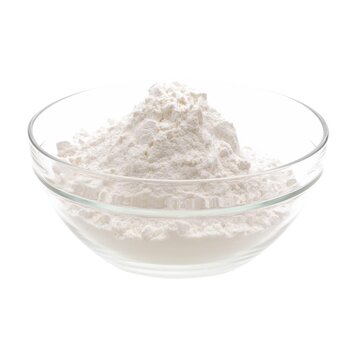
Required Tools
- Baking soda
- Some water
- Old toothbrush
- Steel wool (or sponge)
- Rag
Steps
- Clean your knife thoroughly to remove any dirt. (Don’t use water!)
- Put some baking soda within a bowl, then add some water or lemon juice.
- Stir the mixture till it turns into a paste.
- Put the paste on the toothbrush and start to scrub the knife.
If your pocket knife is too corroded, then a bit more abrasion will help take off the rust. Steel wools are better in which case. Slightly abrasive sponges are another alternative for steel wools.
Read more , How to shuck oysters without an oyster knife
5 – Give White Vinegar a Try!
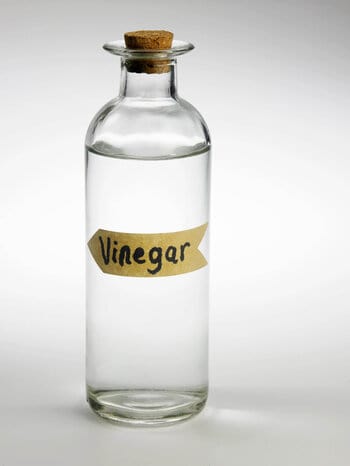
White vinegar contains acetic acid. which is good for removing the rust spot off your folding knife
Required Tools
- A cup
- White vinegar
- Sponge
- Rag
Steps
- Pour the White Vinegar into a Cup.
- Soak your infected folding knife in the vinegar for approximately five minutes
- Wipe your Blade
6-Penetrating Oil – WD-40
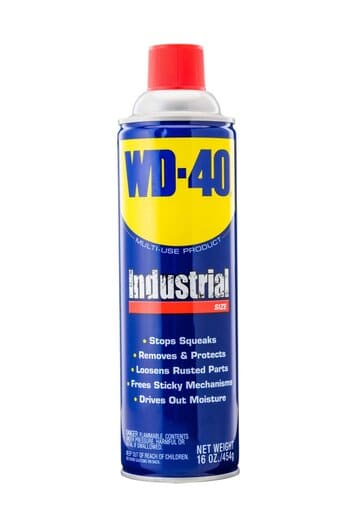
Penetrating oil is one of the best methods to remove rust from your folding knife. But it isn’t suitable for your kitchen rusted knife. as it is harmful if you ingest it.
Required Tools
- WD-40
- Fine sandpapers
- Rag
Steps
- Sprinkle WD-40 On Your Pocket Knife
- Apply highly fine sandpapers (think 400) to clean the corrode blade gently.
- Wipe the folding knife.
7- Don’t Tell Me That You Didn’t Hear of the Dish Soap With Salty Potato Method!
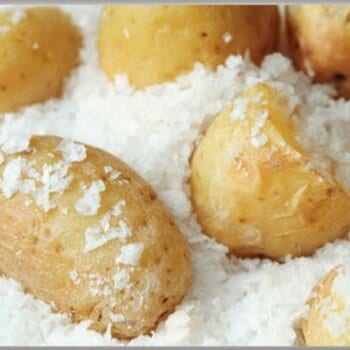
In this method, the oxalic acid can assist in rust dissolving, while salt will act as mild abrasives to get the rust off.
Required Tools
- A dish soap
- Salt
- Potatoes
- Knife
Steps
- Slice the potato into two even parts.
- Add the soap to cover the two halves.
- After adding the soap to the potato, spray salt on it.
- Scrub the rust off
- Stick the corrode knife section in a potato for one or two hours.
- After two hours, scrub the blade on the potato with soap and salt.
- Wash the blade entirely with warm water once or twice.
- Use a smooth towel to dry your blade.
Read more , How to Care for Your Paring Knife?
8-Salt and Lemon Juice
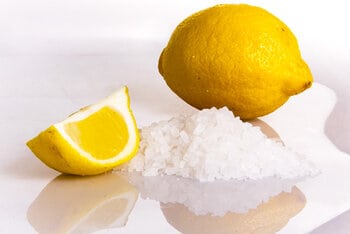
Required Tools
- Salt
- Lemon juice
- Steel wool
Steps
- Put the salt on the pocket knife to cover the corroding areas.
- Cut a lemon, then press the lemon juice on the salt covering the knife.
- Leave the combination of salt and lemon to settle for approximately a couple of hours.
- Rub-off the rust away with a lemon rind. But if the corrode is tough to remove, get steel wool for a bit of thorough scrubbing.
- Wash the knife with warm water then dry it with paper towel.
9-Try the Citric Acid Magic!
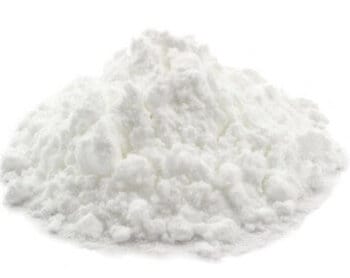
Citric acid is a highly effective method in corroding spot removal.
Steps
- Pour approximately three tablespoons of citric acid into a bowl with warm water.
- Immerse the knife and leave it for a night.
- Rub off the dissolved rust.
This method has one downside. It can remove rust combined with other paint layers on the knife. However, it is an excellent method to clean stainless steel knives.
Check also, 10 Best Bread Knife 2022 Review
10- Metal Glo for Rust Removal
It is a famous chemical compound, helpful in removing stubborn rust off from your rusted knife. it works with your carbon blade or a stainless steel blade knife. It is also safe for cookware, silverware, knife, or even jewelry.
Steps
- Add a thick paste of this material equally to your knife’s metallic section.
- Scrub Metal Glo along the grain pattern to protect the blade from getting scratched.
12- Who Said that Onion is Only for Eating?!
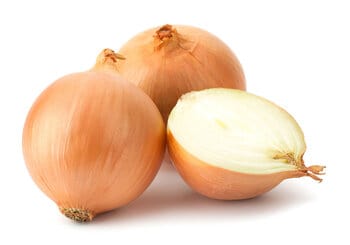
The sulfenic acid in an onion is a crucial ingredient to cleaning a corrode blade. All you need to do is simply rub an onion back and forth into your rusted knife, then the corrode will begin to disappear.
How to Protect Your Pocket Knife From Rusting?
- Your knife has to be always clean and dry before storing
- Decrease Acids Cutting to keep rust off.
- Keep your eye on your knife, mainly when living in a high moisture environment. And when you first notice the slightest mark of corrode, remove it before building up.
- Make sure you always lubricate your knife by oiling it with an oil for folding knives.
- Maintain your pocket knife sharp, by knife sharpening it regularly with a manual knife sharpener or whetstones.
Read also , Things to Consider When Buying an Electric Knife Sharpener
FAQs about How to Get Rust Off a Pocket Knife
How Can I Close My Pocket Knife?
Step 1– Grip your knife from the hilt parts. This step to assure your fingers will not be over the storage opening of your knife blade.
Step 2-Hold your blade firmly by your other hand, then start pushing your knife within the slot quickly.
Step 3-In case there is a blade lock, unlock it before you close your knife.
How Can I Clean My Pocket Knife?
Step 1-Collect gloves, soft rags, scrubbing sponges or toothbrushes, dish soaps, warm water, and lubricants for your blade.
Step 2-Wear your gloves, then wet the rag with warm water. With this cloth, start wiping down the two sides of your knife.
Step 3-With dish soap and a sponge (or toothbrush in case of serrated blades), rub the metal blade.
Step 4-Wash the blade with warm water, then get a dry rag to dry it.
Step 5-Pour some drops of lubricant on your blade to avoid rusting and humidity ruin.
Can Vinegar Remove Rust From Cars?
For low to medium-grade rusty cars, distilled white vinegar will assist in corrode cleaning.
Before you soak the corrode sections in the vinegar with sandpapers, start removing corrode from the infected places.
The vinegar will actively disconnect the bonds between the metal and corrode molecules.
